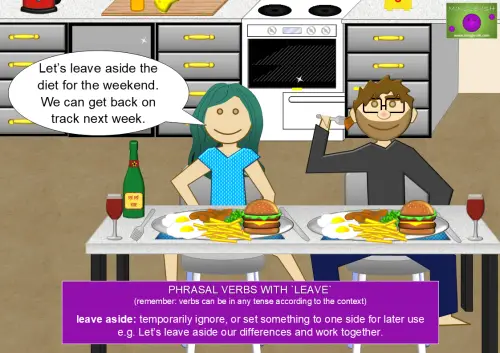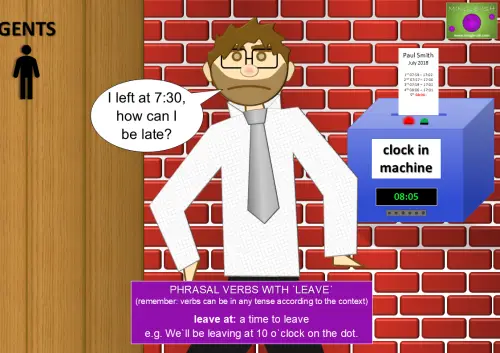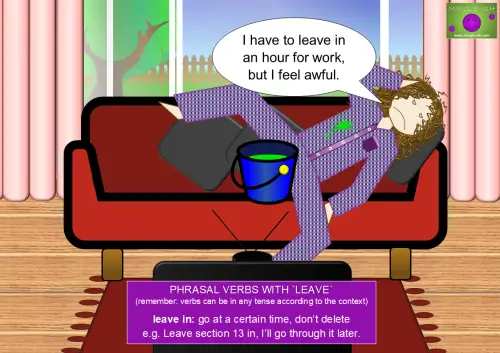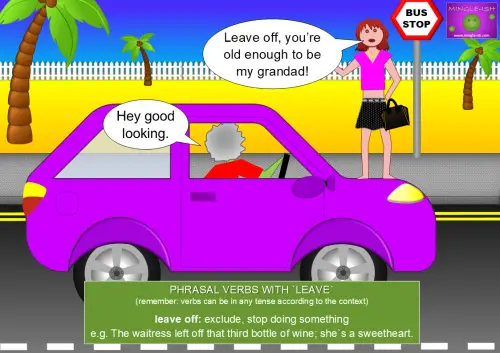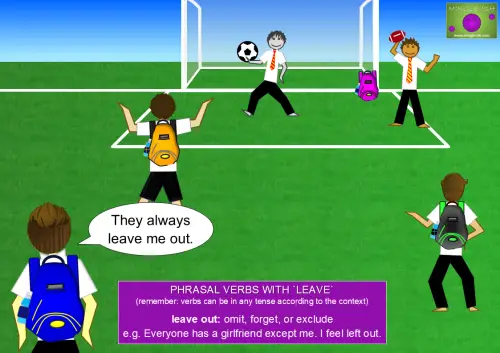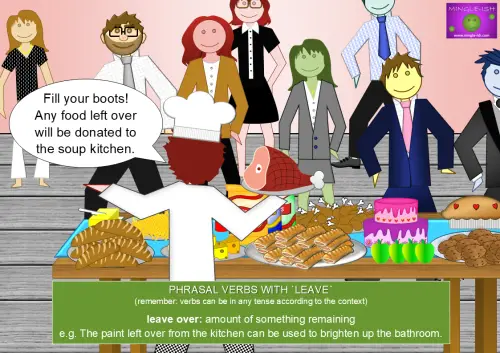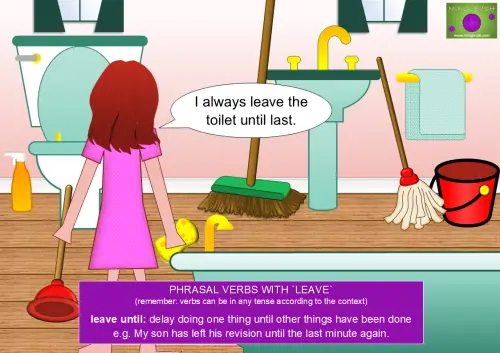Phrasal verbs with leave are very useful in everyday English. Whether you’re talking about leaving a place, ending a relationship, or forgetting something, these phrases help you sound more natural and fluent. In this lesson, we’ll look at some of the most common phrasal verbs with leave, what they mean, and how to use them in real sentences.
Let’s get cracking.
What does ‘leave’ mean?
Many phrasal verbs contain the word ‘leave‘ but it can mean many different things. As a verb, the meaning is to go away from or depart.
For example:
- If you don’t start behaving, I’ll ask you to leave. (go away from)
- We are leaving at 7 am sharp. (depart)
Leave is an irregular verb. The past tense is left and the past participle is also left.
FUN FACT – The past tense of leave is ‘left’. Left is also an adjective and adverb meaning on the left side (opposite to the right). They are spelt and pronounced the same but differ in meaning. This type of word is called a homonym.
Phrasal verbs with leave
Let’s take a look at some useful phrasal verbs with leave. These phrases are common in spoken and written English, and they can change the meaning of leave in interesting ways. Understanding them will help you speak more naturally and confidently.

leave against
meaning – place an object touching another object
example – I’ll leave the groceries against the door.
leave aside
meaning – temporarily ignore, or set something to one side for later use
example – Let’s leave aside our differences and work together.
leave at
meaning – a time to go
example – I left the party at 7.
leave behind
meaning – forget
example – I’m always leaving something behind.
leave for
meaning – go to a place
example – I left for work at 8.
leave in
meaning – an amount of time to go
example – We’ll be leaving in 5 minutes.
leave next to
meaning – place an object beside another object
example – Please leave your dirty clothes next to the washing machine.
leave off
meaning – stop doing something
example – Leave off, stop messing up my hair!
leave on
meaning – a date to go
example – He left on Monday.
leave out
meaning – omit
example – I’m leaving the celery out of the soup recipe.
leave over
meaning – amount of something remaining
example – The decorations left over from my birthday can be used for Sarah’s party.
leave under
meaning – place an object beneath another object
example – Leave the envelope under the folder on my desk.
leave until
meaning – delay doing one thing until other things have been done
example – My son has left his revision until the last minute again.
leave up to
meaning – give someone the responsibility
example – I don’t mind which pub we go to. I’ll leave it up to you.
leave with
meaning – depart from a place with a person or object
example – left home with a leather jacket and came back with a hoody.
Phrasal Verbs with ‘Leave’ Quiz – Test Your English Skills
Now you’re a pro, try and answer the following questions:
- Have you ever left work at midnight?
- Did you leave anything behind the last time you went on holiday?
- What time do you leave for work?
- Do you often leave in a hurry?
- Who was the last person you told to leave off?
- When was the last time you felt left out?
- Do you leave things under your bed?
English courses
If you’ve enjoyed this page, there are plenty more for you to look at. Click here to see the list of groups ready and waiting to be studied. Maybe you just like informal/slang English? Head to my useful tips and information section for loads more hints and tips to speak like a native.
If you really want to take your native speaking to the next level, how about taking a course? Here are some of the best ones:

